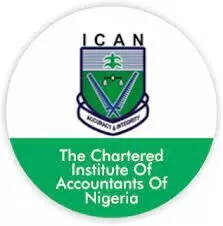- Home
- /
- Business/Economy
- /
- ICAN seeks amicable...
ICAN seeks amicable resolution of VAT collection dispute

The Institute of Chartered Accountants of Nigeria (ICAN), has implored Rivers and Federal Governments to amicably resolve the issue of VAT collection, to protect taxpayers and provide certainty to businesses. Mr Ahmed Kumshe, the Registrar and Chief Executive of ICAN, gave the advice on Tuesday in reaction to the judgement of the Federal High Court […]

The Institute of Chartered Accountants of Nigeria (ICAN), has implored Rivers and Federal Governments to amicably resolve the issue of VAT collection, to protect taxpayers and provide certainty to businesses.
Mr Ahmed Kumshe, the Registrar and Chief Executive of ICAN, gave the advice on Tuesday in reaction to the judgement of the Federal High Court in Suit No. FHC/PH/CS/149/2020.
The matter is between the Attorney General of Rivers, Federal Inland Revenue Service (FIRS) and Attorney General of the Federation.
Supreme reports that the Federal High Court sitting in Port Harcourt had ruled in favour of Rivers in respect of the power to collect Value Added Tax (VAT), essentially giving power to states to collect VAT instead of FIRS.
Kumshe advised that the matter must not be allowed to degenerate given the country’s precarious tax revenue position and the general business environment.
He said that sustaining and replicating the position by other states would increase the cost and time required for compliance by businesses.
This, he said, was in addition to the complexity of administering VAT at the subnational level, such as treatment of international and inter-state transactions.
The ICAN registrar said that administering VAT at the state level might add to the myriad of taxes across different levels of government, many of which are targeted at the same tax base, thereby encouraging multiplicity of taxes.
“Given the rapid development of events since the judgment, there is the need to guide our members, share our views with policymakers and educate the public and other stakeholders on the possible implications.
“While the move by the Rivers State government seeks to promote the principle of fiscal federalism, we are of the view that the matter should be approached carefully to achieve a win-win outcome for all stakeholders.
“Collection of VAT by states may be more demanding, especially in the short to medium term in the aspect of VAT skills and knowledge, dealing with digital transactions, VAT audit, and dispute resolution.
“In the absence of exemption threshold for small businesses and limited list of exempted goods and services, there may be adverse effect on the masses in Rivers State especially poor households and SMEs,” he said.
Kumshe said that the ongoing development presented an opportunity to re-examine Nigeria’s fiscal federalism and leverage on the ongoing Constitutional review to fashion out the most suitable fiscal structure for the country.
According to him, the process should include a review of the VAT law, its administration and revenue sharing formula.
This, he said, must be in a manner that strengthens the subnational level of government while ensuring uniformity of treatment as much as possible.




